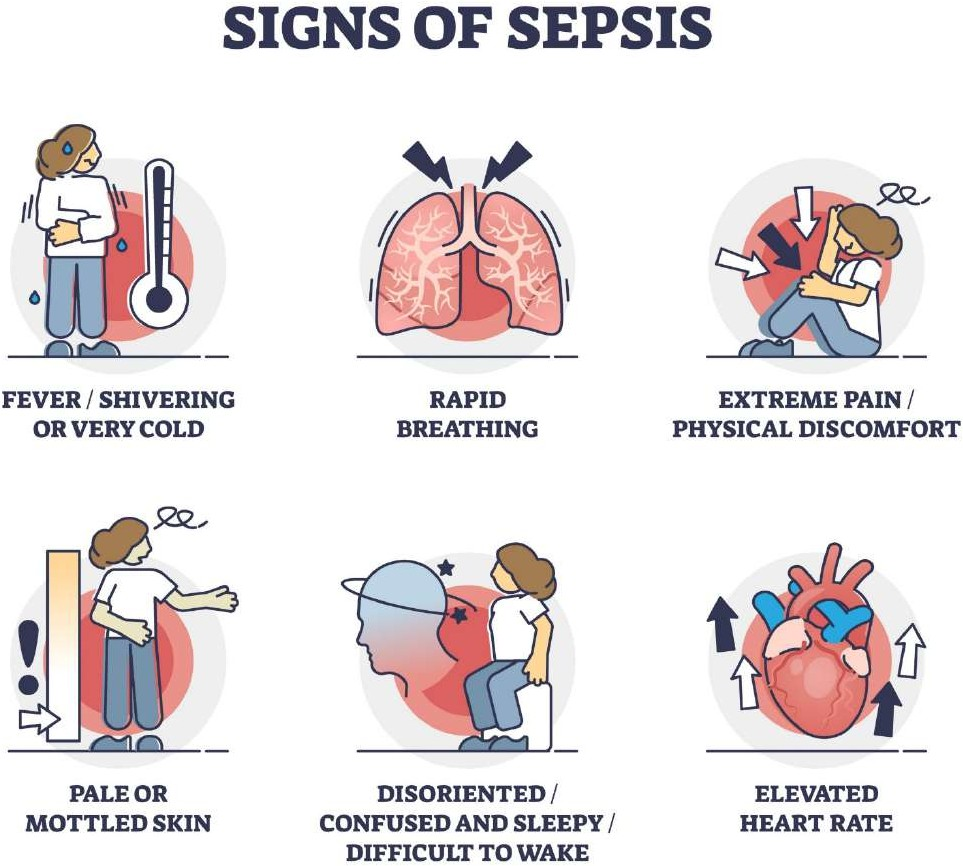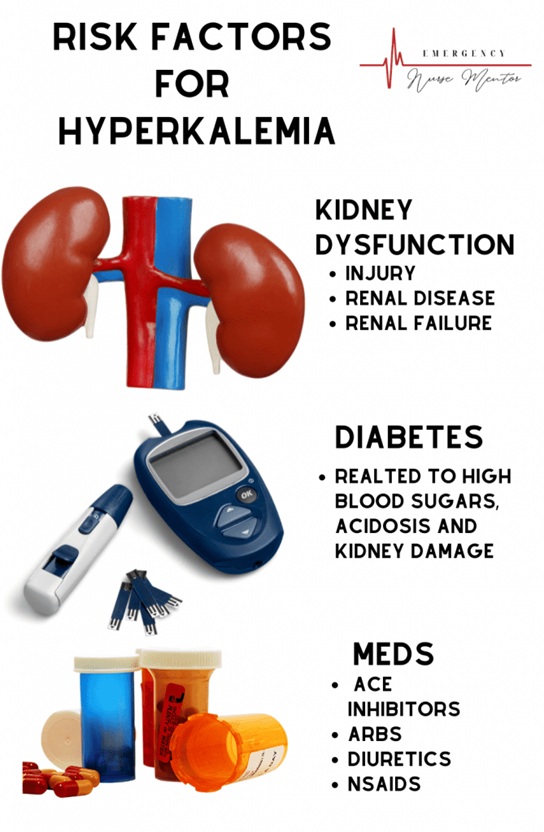A nurse is providing care to a client who has peritonitis. Which of the following conditions is the highest priority for
the nurse to monitor?
Heart atack
Diabetes
Respiratory failure
Sepsis
The Correct Answer is D
Choice A reason: While a heart atack is a serious condition, it is not directly related to peritonitis. Peritonitis can lead to systemic infection, which may indirectly affect the heart, but it is not the primary concern in the immediate care of peritonitis.
Choice B reason: Diabetes is a chronic condition that requires ongoing management. However, it is not the most immediate threat when a client is diagnosed with peritonitis. The nurse should continue to monitor blood glucose levels as part of routine care.
Choice C reason: Respiratory failure can be a complication of peritonitis if the infection spreads and affects other systems. However, the primary concern with peritonitis is the potential for the infection to lead to sepsis.
Choice D reason: Sepsis is a life-threatening condition that can occur as a complication of peritonitis. It happens when the body's response to infection causes injury to its own tissues and organs. Monitoring for signs of sepsis is crucial because early intervention can be lifesaving.

Nursing Test Bank
Naxlex Comprehensive Predictor Exams
Related Questions
Correct Answer is ["C","D","E"]
Explanation
Choice A reason: Bathing twice a day is not necessary and can dry out the skin, which may lead to cracks and increase the risk of infection.
Choice B reason: Douching is not recommended as it can disrupt the natural ?ora of the vagina and potentially increase the risk of UTIs.
Choice C reason: Consuming adequate fluids is important to help ?ush bacteria from the urinary tract.
Choice D reason: Completing all antibiotics as prescribed is crucial to ensure the infection is fully treated and to prevent resistance.
Choice E reason: Wiping from front to back helps prevent bacteria from the anal area from spreading to the urethra.
Correct Answer is D
Explanation
Choice A reason: Hypernatremia, which is an abnormally high level of sodium in the blood, is not typically associated with prerenal AKI. Prerenal AKI is often related to hypovolemia, which can lead to hyponatremia rather than hypernatremia.
Choice B reason: Hypophosphatemia, or low levels of phosphate in the blood, is not a common finding in prerenal AKI. Phosphate levels are more often affected in intrinsic renal diseases or refeeding syndrome.
Choice C reason: Hypercalcemia, or high levels of calcium in the blood, is not commonly seen in prerenal AKI. It is more frequently associated with malignancies or hyperparathyroidism.
Choice D reason: Hyperkalemia, which is an elevated level of potassium in the blood, is a common electrolyte imbalance in prerenal AKI. This occurs due to decreased renal perfusion and the kidney's reduced ability to excrete potassium.

Whether you are a student looking to ace your exams or a practicing nurse seeking to enhance your expertise , our nursing education contents will empower you with the confidence and competence to make a difference in the lives of patients and become a respected leader in the healthcare field.
Visit Naxlex, invest in your future and unlock endless possibilities with our unparalleled nursing education contents today
Report Wrong Answer on the Current Question
Do you disagree with the answer? If yes, what is your expected answer? Explain.
Kindly be descriptive with the issue you are facing.
